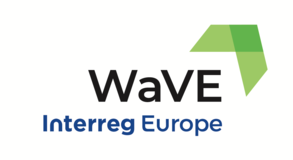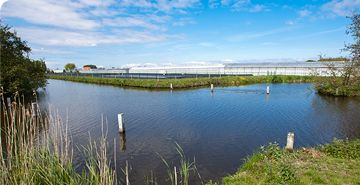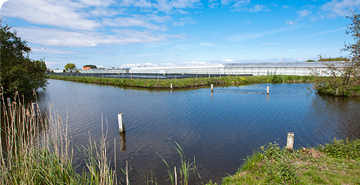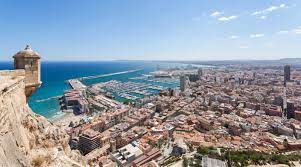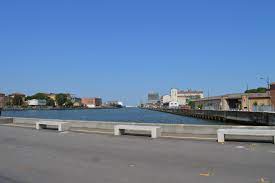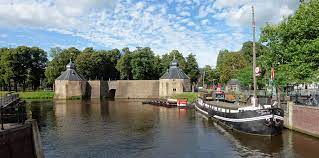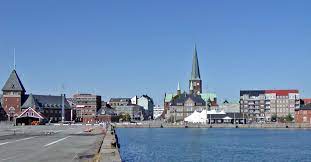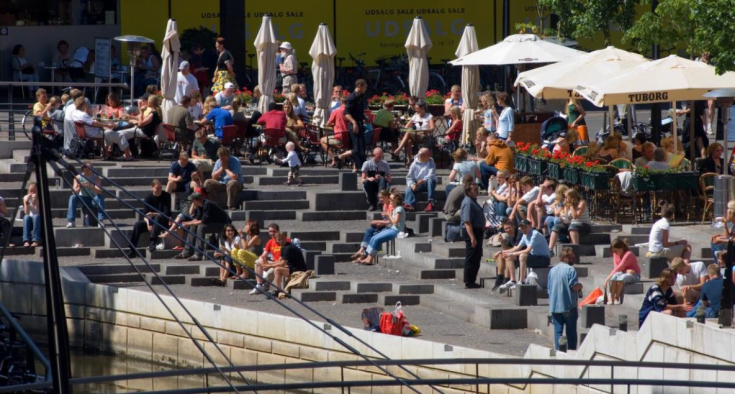In the past few weeks we have anticipated great news for WaVE: 2 Pilot Actions have been approved by the Interreg Europe Monitoring Committee.
>> Want to know more about Pilot Actions? Read the article!
We interviewed Péter Nagy, Director of the Ister-Granum EGTC, who told us in more detail which new approach they are going to test within the Pilot.
1) What is your Pilot's focus? Which element are you going to test?
The pilot action is dedicated to test, in selected settlements of the Ister-Granum region, heritage valorisation actions which includes the implementation of a research identifying tangible and intangible water-related heritages with a special focus on traditional water-related occupations and legends; and create thematic routes along these heritages applying storytelling.
2) Who will be the main beneficiaries of the pilot action?
The most direct beneficiaries of the pilot are the 15 selected municipalities of the region being LSG members in WaVE, such as the Municipality of Zalaba who are the owner of the Zalaba water-mill, Municipality of Nagybörzsöny who are key decision maker in the development of Nagybörzsöny mill, Municipality of Stúrovo who host the Bridge Guard and Aquaphone good practice of Ister-Granum, Municipality of Esztergom who host the Danube Museum good practice and having several historical water related heritages; and the Municipality of Karva who have already implemented several investments related to water related heritages.
The selected municipalities are especially motivated to pilot these activities as most of them are small villages of the region’s rural areas. In these villages, many of their planned development projects address rural, slow, sport and gastro tourism. It is key for them to valorise their heritages for the purpose of attracting tourists. 
3) How is the pilot action linked to the exchange of experience process? How does it relate to good practices learnt from other project partners and local stakeholder groups?
We are going to test the Blueroutes good practice of Alicante in our pilot. Furthermore, different activities of our pilot also received inspiration from other good practices of partners.
In the Blueroutes good practice an expert panel was set up to systemically research the hydrological values of the Alicante region. The panel created a heritage evaluation system which enables people (not experts) to understand the value of heritage they visit. The outcome of the project was a so-called BlueRoutes guide document, website and mobile application which is promoted regularly in social media.
The goal of the pilot action is to implement a similar research in selected settlements of the Ister-Granum region to collect tangible and intangible water-related heritages with a special focus on traditional water-related occupations and legends; and create 5 thematic routes along selected heritages applying storytelling.
4) How will the implementation and new lessons learnt from the pilot action be shared among the partnership to enrich the interregional exchange of experience?
During the pilot implementation process, in September 2021, an interregional thematic meeting will be organized in the Ister-Granum region where the interim results of the pilot will be presented to the partners such as the outcome of the contest, the research and the draft inventory, furthermore the potential stops (heritage sites) of the thematic routes can be visited by partners. In semester 5, hopefully, additional physical partner meetings can be organized where Ister-Granum will share their experiences in the Pilot and get additional thematic support from partners for the pilot implementation. If physical meetings will not be possible in September 2021, we are going to organize online meetings to exchange knowledge about the Pilots.
As the topic of this pilot (storytelling, intangible heritage, thematic routes, videos) is very relevant for the other partners, it is expected that partners can easily learn from each other in this regard. Therefore, the knowledge gained in the pilot, can be applied by partners both for developing and implementing their action plan. The final results of the pilot will be presented to partners and their stakeholders in the final conference at the end of phase 2.
5) What does it mean for you to be able to work on the Pilot?
It is an exceptional opportunity for us to test the lessons learnt from the WaVE partners already in phase 1 receiving additional support from them and share our results with them. This pilot is particularly important for us now in this pandemic situation as we had difficulties to involve stakeholders in the project through exclusively online activities, but the pilot generates new energies at the local level and shows something physical and tangible for stakeholders motivating them to participate in and contribute to the rest of the project activities.
